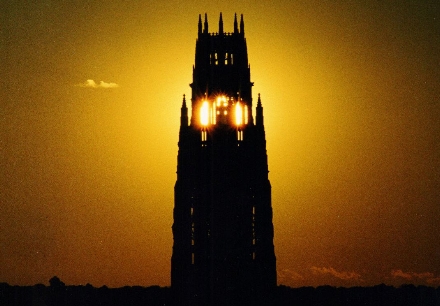An Error Worse than Ta'ut
From First Things, which may have a "friend" in a recently posted quote from Chomsky;
For a long time as a young teacher, I believed the danger of prostituting their minds by believing falsehoods was the preeminent, or even singular, intellectual danger my students faced. So I challenged them and tried to teach them always to be self-critical, questioning, skeptical. What are your assumptions? How can you defend your position? Where’s your evidence? Why do you believe that?
I thought I was helping my students by training them to think critically. And no doubt I was. However, reading John Henry Newman has helped me see another danger, perhaps a graver one: to be so afraid of being wrong that we fail to believe as true that which is true. He worried about the modern tendency to make a god of critical reason, as if avoiding error, rather than finding truth, were the great goal of life...
Critical reason, which Newman sometimes calls “strict reason,” and which he certainly did not reject, parses arguments, examines premises, and tests hypotheses. It filters belief. Strict reason is critical, not creative. The methods of critique “will pull down, and will not be able to build up.” Clear-minded and scrupulous analysis clears the underbrush of error, but it cannot plant the seeds of truth [having removed, or is confident it has removed - all possible contenders].
Therein lies the danger. If we fear error too much, and thus overvalue critical reason, we will develop a mind active and able in doubt but untrained to move toward belief, a mentality too quick to find reasons not to nurture convictions [welcome to the regnant Ashkenazi Jewish world...].
Ideally, we would like critical reason to minister to the more fundamental project of affirming truth. We picture ourselves scrupulously examining various truth-claims, weeding out the irrational ones, and then judiciously assenting to those that seem to have solid grounds.
As Newman recognized, life does not work that way. In the first place, our mental machinery isn’t so finely tuned. Of any one of our convictions, he says in a pithy formula, “That according to its desireableness, whether in point of excellence, or range, or intricacy, so is the subtlety of evidence on which it is received.”
In other words, answers to really important questions can’t be answered very easily...
The great French mathematician Blaise Pascal made a similar observation, which I formulate in the following way: The certainty with which we can know a truth is inversely proportional to its importance.
Neither Newman nor Pascal implied that we cannot reason about important things [it's another, more questionable claim, to say that we can reason to them]. On the contrary, Pascal famously formulated an argument designed to induce us to answer [but not formulate] one of the most important of all questions: Does God exist? As Pascal’s wager suggests, both Pascal and Newman recognized that truth outruns our powers of reason. Therefore, we need to risk error as we leap forward to grasp what we hope to be the deeper truth of things.



